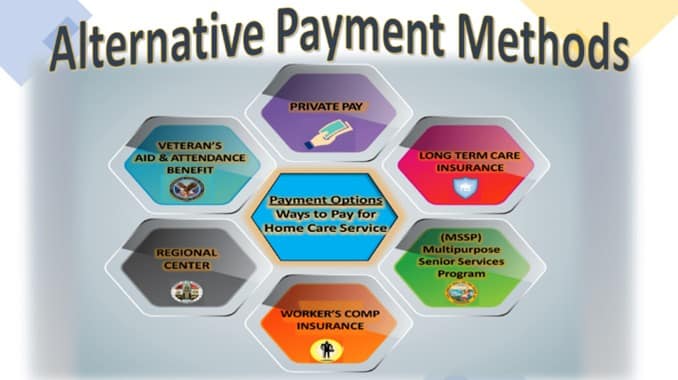It’s important to understand the help Worker’s Comp coverage provides you if the worst happens and you’re injured at work.
WHAT WORKER’S COMP COVERS
Depending on the policy, coverage, type and severity of your injury, Worker’s Comp covers the cost of:
- Initial Emergency Room Visit
- Doctor’s visits
- Medical / Surgical Treatment
- Physical Rehab
- Durable Medical Supplies
- Visiting Nurse from Home Health Agency (HHA)
- Home Care Services from Home Care Organization (HCO)
What Should I Do if I’m Injured On the Job?
If your injury or illness developed over time, report it as soon as you learn or believe it was caused by your job.
If you fail to report the injury promptly, there can be problems and delays in receiving benefits, including needed medical care.
In fact, your employer must learn about your injury within 30 days and fully investigate the injury and how you were injured. You could lose your right to receive workers compensation benefits if your employer isn’t able to review the situation and your claim because you delayed in reporting it.
Get Emergency Treatment
Do not refuse the medical help you need when you’re injured. Your employer may tell you where to go for treatment, but he can’t tell you not to get emergency treatment. Tell the health care provider or emergency room who treats you that your injury or illness is job-related.
Do I Need to Fill Out The Claim Form (DWC 1) My Employer Gave Me?
Yes. Your employer must give or mail you a claim form within one working day after learning about your injury or illness. You can also download the form from the forms page of the DWC website if your employer doesn’t give you the claim form.
Information contained within the Claim Form or Worker’s Compensation packet supplied by your employer will also include the Medical Provider Network (MPN) used by your company.
The Medical Provider Network (MPN) is a searchable database of approved doctors, pharmacies, treatment centers, physical therapy centers, home care agencies and other medical resources covered under your company’s Worker’s Compensation policy.
Giving the completed claim form to your employer starts the process for finding all benefits you may qualify for under state law.
Those benefits include, but are not limited to:
- A presumption that your injury or illness was caused by work if your claim is not accepted or denied within 90 days of giving the completed claim form to your employer
- Up to $10,000 in treatment under medical treatment guidelines while the claims administrator considers your claim
- An increase in your disability payments if they’re late
- A way to resolve any disagreements between you and the claims administrator over whether your injury or illness happened on the job, the medical treatment you receive and whether you will receive permanent disability benefits.
What Type of Injuries Are Covered
Worker’s Compensation covers injuries that occur due to an accident or physical damage caused by repeated exposure to an unhealthy environment.
When injured, there are many resources provided to help you recover and return to the work force. Worker’s Compensation aids with medical bills, physical therapy, visiting nurses and medical supplies. You may also be eligible for non-medical assistance from a Home Care Agency to help with transportation to doctor’s appointments, after surgery care, bathing, personal care, dressing and other daily chores.
Some examples for accidental injuries on the job:
- Being cut or crushed by machinery
- Be injured in a car accident while making deliveries
- Chemical burns
Another type of situation you could be injured is due to repeated exposures at work.
Examples for repeated exposure injuries:
- Hurting your wrist from doing the same motion over and over (Carpal Tunnel Syndrome)
- Losing your hearing because of constant loud noise
For example:
 #1 If you suffer a severe spinal injury due to a fall, you may be confined to a wheelchair, require surgery and be unable to drive or shower yourself. Worker’s Comp would help with medical bills, provide the wheelchair, physical therapy and visiting nurses. You could also receive daily assistance from a caregiver to take care of shopping, cooking, cleaning, laundry and your personal hygiene.
#1 If you suffer a severe spinal injury due to a fall, you may be confined to a wheelchair, require surgery and be unable to drive or shower yourself. Worker’s Comp would help with medical bills, provide the wheelchair, physical therapy and visiting nurses. You could also receive daily assistance from a caregiver to take care of shopping, cooking, cleaning, laundry and your personal hygiene.
 #2 If you have a crush injury to your arm and shoulder you would be dealing with multiple surgeries, pain, restricted mobility and limits on caring for yourself. Worker’s Comp ensures you receive the medical care you need and can provide a caregiver to assist you in your home during recovery. An experienced Home Care Agency will have caregivers knowledgeable with after surgery care who work in tandem with your medical team to speed your recovery.
#2 If you have a crush injury to your arm and shoulder you would be dealing with multiple surgeries, pain, restricted mobility and limits on caring for yourself. Worker’s Comp ensures you receive the medical care you need and can provide a caregiver to assist you in your home during recovery. An experienced Home Care Agency will have caregivers knowledgeable with after surgery care who work in tandem with your medical team to speed your recovery.
 #3 In the event of an accident resulting in brain trauma, you could need surgery, physical therapy and suffer long term memory or brain impairment. Worker’s Comp would provide peace of mind for you and your family by providing the medical care and therapy you need and you could have a personal care attendant from a home care agency assist you with bathing, dressing, after surgery and memory care.
#3 In the event of an accident resulting in brain trauma, you could need surgery, physical therapy and suffer long term memory or brain impairment. Worker’s Comp would provide peace of mind for you and your family by providing the medical care and therapy you need and you could have a personal care attendant from a home care agency assist you with bathing, dressing, after surgery and memory care.
What Benefits Am I Entitled To?
There are five basic benefits provided by Workers Compensation insurance:
- Medical care: This is paid by your employer to help you recover from an injury or illness caused by work
- Temporary disability benefits: You receive payments if you lose wages because your injury prevents you from doing your usual job while recovering. This is a percentage of your earnings.
- Permanent disability benefits: If you don’t recover completely, you’ll receive disability payments.
- Supplemental job displacement benefits (if your date of injury is in 2004 or later): If you don’t recover completely and don’t return to work for your employer, you may be issued Vouchers to help pay for retraining or skill enhancement to get another job.
- Death benefits: If you die from a job injury or illness, payments will be made to your spouse, children or other dependents.
Who Pays
You can authorize Medical Facilities like Skilled Nursing Facilities, Convalescent Homes and Assisted Living Homes to bill your insurance directly.
Choosing a home care organization (HCO) from your Medical Provider Network (MPN) allows the agency to bill your insurance directly.
You can search your Medical Provider Network (MPN) for A-1 Home Care Agency to see if we’re pre-approved. You can also request or nominate our agency to be your home care provider.
Most home care agencies will bill the client directly on a monthly basis then submit all necessary forms to the insurance company. The client is then reimbursed by the insurance company.
Every insurance company will have certain requirements, forms and information that the Care Provider must submit correctly and on schedule or the client’s reimbursement will be delayed. This will include the Care Plan, Case Notes, Invoices and other documentation.

What If I Have Other Questions?
Local DWC district offices offer free seminars for injured workers, providing full explanation of workers’ comp benefits, your rights and responsibilities. You can also make an appointment with an I&A officer for a private consultation at your convenience.
Other Resources
You can also go to the I&A page of the DWC’s website and review the fact sheets and guides for injured workers. This will provide answers to frequently asked questions about your benefits and will help you fill out forms to resolve any problem with your claim.
I NEED HELP WITH TASKS MY VISITING NURSE CAN’T DO
A visiting nurse is there to provide in home medical assistance and is responsible for many patients per day. She can’t provide help with household chores, laundry, shopping or preparing meals. Nor can she drive you to doctor’s appointments.
There is help available through Non-Medical Home Care Agencies. These agencies provide caregivers, nurse aides, home health aides or personal care attendants to help you with those everyday tasks that your injuries and pain prevent you from doing.
A-1 Home Care Agency is State licensed, bonded and insured with care providers experienced in After Surgery Care. We are approved by several Worker’s Compensation Medical Provider Networks (MPNs) and have been helping injured, ill and disabled residents of Los Angeles, Orange County and San Gabriel Valley since 1991.
If you are receiving Workers Compensation Benefits, ask your lawyer or representative if you can use our home care services during your recovery.
Get In Touch!
Subscribe to Our Company Blogs!
Subscribe to our Company Blogs and receive more information about our services, and organization updates! Receive a free Home Care e-book for signing up!


